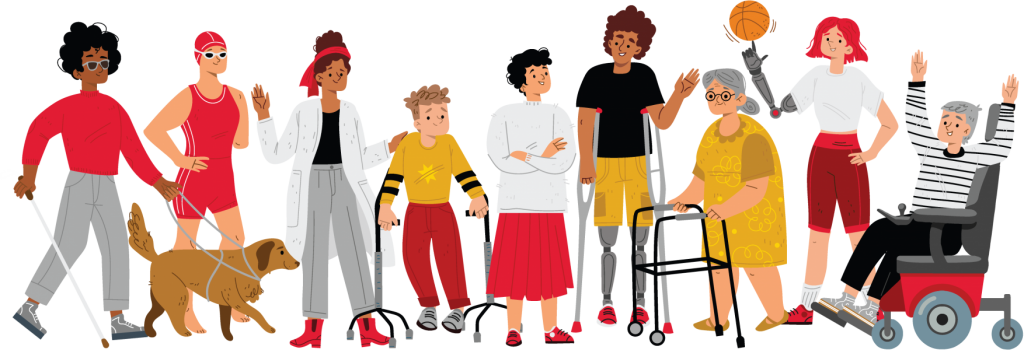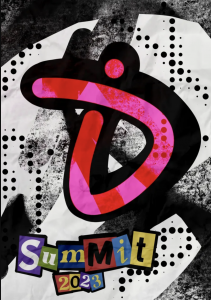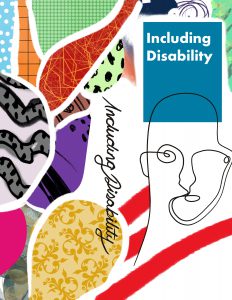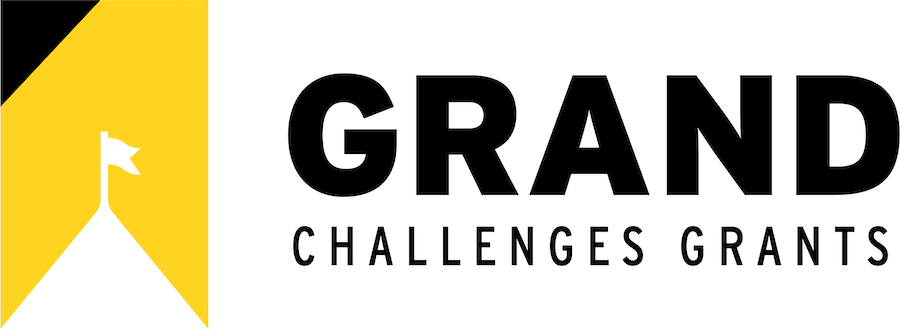
Over 20% of people are excluded from education, employment, and healthcare due to inaccessible digital technologies and content.
Digital technologies (such as software apps, websites, digital documents, and operating systems) are often designed without considering the needs of people with disabilities. Remediating existing accessibility issues can be a time-consuming and expensive process that still fails to include the disability community and often leads to delays in access.
The new Maryland Initiative for Digital Accessibility (MIDA) combines the expertise and passion of researchers, designers, developers and educators from multiple disciplines at the University of Maryland with a united goal of making digital technologies accessible for all. MIDA aims to involve the disability community, private and public partners, and anyone interested in accessibility issues, in technology development projects, public outreach programs and advocacy. We will collaborate with others to proactively build in accessibility when developing new technologies – known as the “born-accessible” approach.
MIDA has five high-level goals:
- Building a community of faculty, staff, and students across the University of Maryland (UMD) who are passionate about digital accessibility
- Creating opportunities for UMD to engage with external stakeholders including disability rights groups, technology companies, and policymakers
- Developing technology projects to improve accessibility and demonstrate the born-accessible approach to design
- Fundraising to further support MIDA’s mission
- Increasing awareness of digital accessibility through public events and programming at UMD.
Funding for MIDA is provided by the UMD Grand Challenges program, UMD College of Information Studies, UMD College of Education, UMD Division of IT, and Adobe.
Including Disability
MIDA is the organizational home for the Including Disability Global Summit and the Including Disability Journal.
 The Including Disability Global Summit is an international forum for dialog and collaboration about large-scale societal, technological, political and other barriers that challenge disabled people.
The Including Disability Global Summit is an international forum for dialog and collaboration about large-scale societal, technological, political and other barriers that challenge disabled people. Including Disability is a peer-reviewed, online, open access journal that provides cross-disciplinary, cross-disability, and cross-sectional examinations of large-scale social, technological, cultural, and legal barriers faced by disabled people and offers innovative approaches to eliminating these barriers.
Including Disability is a peer-reviewed, online, open access journal that provides cross-disciplinary, cross-disability, and cross-sectional examinations of large-scale social, technological, cultural, and legal barriers faced by disabled people and offers innovative approaches to eliminating these barriers.MIDA News
- Building an accessible digital WalesDr. Jonathan Lazar shares about the Born Accessible Model for accessibility in Wales in the public sector.
- Bridging Accessibility, Law & HCI: A Conversation with Dr. Jonathan LazarDr. Jonathan Lazar speaks with the International Association of Accessibility Professionals for episode 52 of the United in Accessibility podcast.
- Alumni Profile: How One Alum Went From Doodling to Design SystemsSparsh Paliwal, a graduate of UMD’s HCIM program shares his journey from doodling towards designing and how it led him to Adobe.
- UMD MIDA Researchers Play Major Role at ASSETS 2024 ConferenceUMD faculty and students provide leadership and research insights at international technology accessibility research conference in Canada.
- Journalists visit UMD to learn about our AI initiativesThank you to guest journalists Fisayo Fosudo and Dashveenjit Kaur for visiting our University of Maryland facilities and learning more about our AI initiatives! Always great to coordinate with U.S. Department of State’s Foreign Press...
- MIDA Is Helping Lead the World Towards Born-Accessible DesignDisability rights advocates often call for digital technologies and content to be built using a born-accessible approach. The born-accessible approach involves building accessibility into digital technologies and content from the beginning, meaning that only technologies...
- A New Way to Make Digital Technology Accessible to AllA Grand Challenges Q&A with Gulnoza Yakubova: Associate professor in the College of Education, Gulnoza Yakubova is a co-principal investigator of MIDA. She explains how digital accessibility can increase equity for people with disabilities and...




